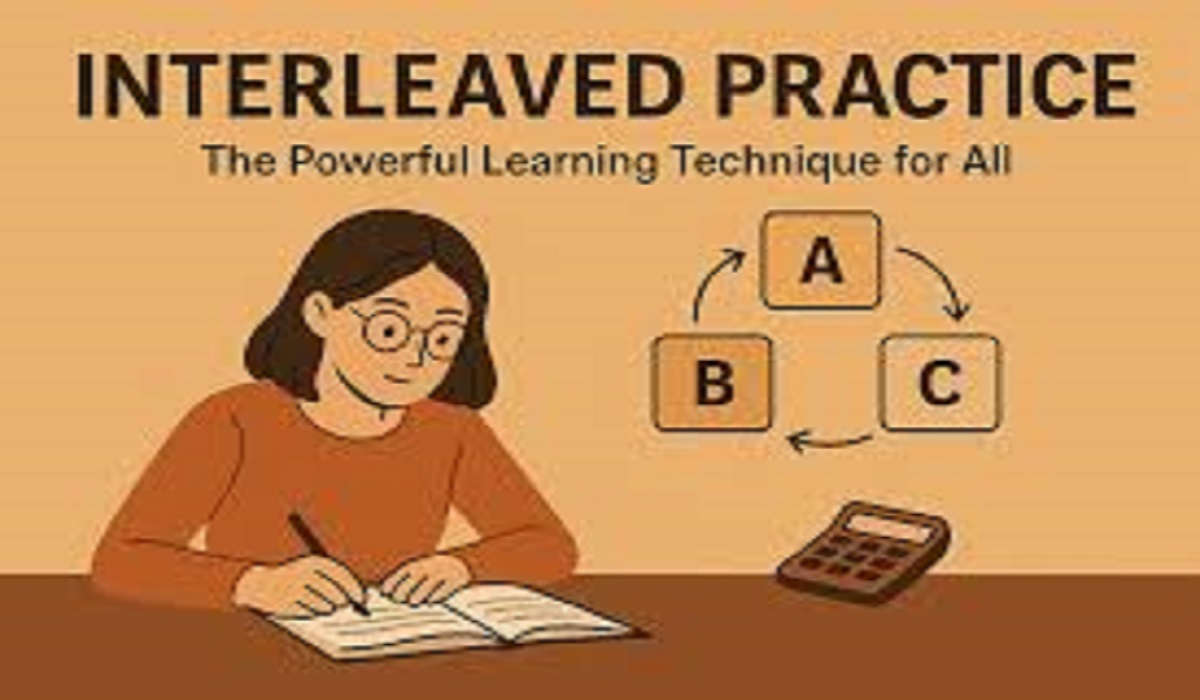The Power of Interleaving
The Power of Interleaving: In the world of learning and education, students and educators are always searching for more effective study techniques. One such powerful yet often overlooked method is interleaving. Unlike traditional blocked practice, where learners focus on one topic or skill at a time, interleaving mixes different subjects or skills in a single study session.
Research shows that interleaving enhances long-term retention, improves problem-solving skills, and helps learners apply knowledge more flexibly. In this comprehensive guide, we’ll explore what interleaving is, how it works, its benefits, and practical ways to implement it in your study routine or teaching methods.
What Is Interleaving?
Interleaving is a learning technique where instead of focusing on a single topic for an extended period (blocked practice), learners alternate between different but related topics or skills.
For example:
- A math student might mix algebra, geometry, and calculus problems in one session instead of doing 50 algebra problems in a row.
- A language learner could practice vocabulary, grammar, and listening exercises in a shuffled order rather than studying them separately.
This approach forces the brain to retrieve and apply knowledge dynamically, leading to deeper understanding and better retention.
Interleaving vs. Blocked Practice: Key Differences
| Feature | Interleaving | Blocked Practice |
|---|---|---|
| Structure | Mixed topics/skills | One topic at a time |
| Difficulty | Feels harder initially | Feels easier initially |
| Retention | Better long-term recall | Short-term gains fade quickly |
| Application | Improves problem-solving flexibility | May lead to rote memorization |
While blocked practice feels easier in the moment, interleaving leads to stronger, more adaptable learning.
The Science Behind Interleaving
Studies in cognitive psychology, including research by Robert Bjork (UCLA), show that interleaving:
✅ Enhances discrimination (helps learners distinguish between concepts)
✅ Strengthens memory retrieval (forces the brain to recall information actively)
✅ Promotes deeper learning (encourages connections between topics)
A famous 2013 study in Journal of Educational Psychology found that students who used interleaving performed 25% better on tests than those who used blocked practice.
Benefits of Interleaving in Learning
✔ Better Long-Term Retention
Because interleaving requires frequent retrieval, it strengthens memory.
✔ Improved Problem-Solving Skills
Learners become better at applying knowledge in new contexts.
✔ Prevents Overconfidence
Blocked practice can create an illusion of mastery, while interleaving reveals gaps early.
✔ More Engaging Learning
Mixing topics keeps study sessions dynamic and less monotonous.
How to Apply Interleaving in Different Subjects?
Mathematics
Instead of solving 30 similar algebra problems, mix:
- 10 algebra
- 10 geometry
- 10 probability
Language Learning
Combine:
- Vocabulary flashcards
- Grammar exercises
- Listening comprehension
Science & History
Alternate between:
- Different scientific concepts (e.g., photosynthesis + cellular respiration)
- Historical events from different eras
Music & Sports
- Practice scales, chords, and songs in one session.
- Alternate between different drills in sports training.
Interleaving for Teachers: Classroom Strategies
- Mix homework assignments (e.g., combine math problems from different chapters).
- Use spaced quizzes with varied question types.
- Encourage self-testing with mixed-concept flashcards.
Common Misconceptions About Interleaving
❌ “It’s just random studying.” → No, it’s structured mixing of related topics.
❌ “It’s only for advanced learners.” → Works for all levels!
❌ “It’s too confusing.” → Initial difficulty leads to better learning.
Challenges and How to Overcome Them
- Feels harder at first → Stick with it; improvement comes with time.
- Requires planning → Use study schedules or apps to organize topics.
- Not always intuitive → Start small (e.g., mix two subjects first).
Tools and Resources to Support Interleaving
- Anki (flashcard app with spaced repetition)
- Quizlet (create mixed-concept study sets)
- Khan Academy (varied practice problems)
FAQs About Interleaving
❓ Is interleaving better than blocked practice?
Yes, for long-term retention and problem-solving, interleaving is superior, even if it feels harder initially.
❓ Can interleaving be used for exam preparation?
Absolutely! Mixing topics helps prevent forgetting and improves test performance.
❓ How much time should I spend on interleaving?
Start with 20-30% of study time and gradually increase as you adapt.
❓ Does interleaving work for all subjects?
Yes, from math to languages to sports, it enhances learning flexibility.
❓ Why does interleaving feel difficult?
Because it forces active recall, which is more effortful but leads to stronger learning.
Conclusion
Interleaving is a powerful, research-backed learning strategy that boosts retention, problem-solving, and adaptability. While it may feel challenging at first, the long-term benefits make it worth adopting.
